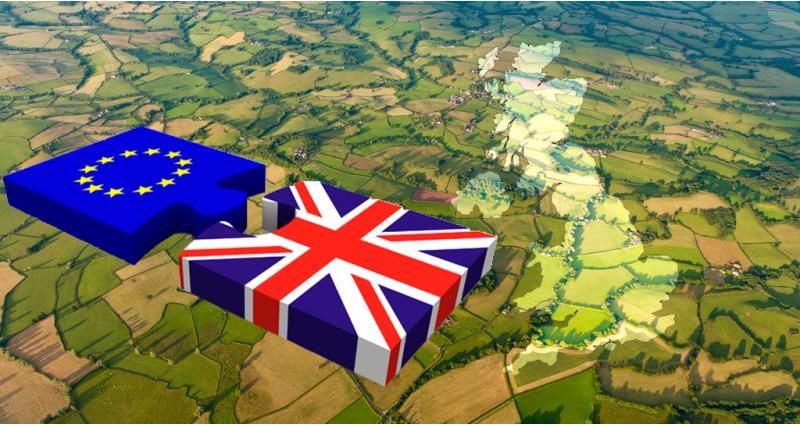In summary, the EU27 believes that the UK should remain in the Single Market and Customs Union for the length of the transition, which would allow valuable trade to continue unchanged. The conditions for doing so are that the UK would have to follow all the rules exactly how other members do, overseen by the EU, but without any voting rights during the period. The EU27 foresees such a transition ending on 31 December 2020.
The European Commission will now use these guidelines as the basis for negotiating the terms of the transition with the UK. While the outcome of these talks is still to be agreed, there are several points worth noting for their relevance to British farming businesses.
A level playing field and no cherry picking
A principle at the heart of the EU27 position is a desire to protect the integrity of the Single Market. To this end they rule out a “sector-by-sector” approach as to which areas of the economy are covered by the agreement. Aside from continued lack of barriers to trade flows, an important implication for agriculture is that continued participation in the Single Market would presumably mean continued implementation of the CAP in the same way as all other member states. This would clearly have ramifications for the nature and pace of change of the UK’s own domestic agricultural policy.
However, given the complicated nature of EU budgets – Basic Payments in 2020 would be funded by the EU budget cycle that begins in 2021 and therefore after the end of the transition – there remains a question mark over how exactly the UK would be expected to implement the CAP in 2020. Ministers have confirmed that BPS 2019 will be business as usual, however it is impossible to say for sure at this time when Minsters will be able to introduce the UK’s own domestic agricultural policy.
Rule-taker, not a rule-maker
Another central theme of the EU27 position is that in order to remain in the Single Market, the UK will have to retain all of its rules and continue to be audited by EU authorities to ensure compliance. This also extends to new regulations that are made during the transition. The EU believes that the UK should have no say in how these laws are made, but it would still have to implement them. The European Court of Justice would also continue to have jurisdiction in the UK.
Furthermore the EU27 believes that the UK should no longer attend or vote in the numerous committees that make decisions on a daily basis, unless the EU expressly agrees to make an exception. This implies that unless negotiated onto a list of exceptions, the UK would have no voice at committees that deal with pesticide or animal medicine approvals for example.
Curbing UK trade ambitions
The UK government is keen to conclude new trade deals outside of the EU as soon as possible. However, the EU27 believes that the UK must respect the EU’s trade policy during transition. They insist that the UK should not enter into international agreements until after the transition unless the EU authorises it to do so.
Once again, the protection of the integrity of the Single Market is the driving force behind this; however the position does raise two important points for agri-food trade flows.
Firstly, the UK intends to continue to apply existing trade deals after it leaves. It is unclear if this “grandfathering” of deals constitutes “entering into an international agreement” and therefore if the EU must authorise each agreement. Some suggest that this will depend on the nature of the agreement and how different it is to the existing arrangement. Either way, it will also require the country with whom the deal is with to also accept the continuation of the deal.
Secondly, while the EU27 believes that the UK should not enter into international agreements, it does not expressly rule out the UK beginning talks on any new deals and potentially getting close to concluding them during the transition.
All four freedoms
The EU27 asserts that during a transition period the four freedoms of the Single Market would apply in the UK. This includes the freedom of movement for goods, services and capital that would ensure that there are no barriers to trade. The final freedom – the freedom of movement for people – would also ensure that EU and UK citizens could move and work as they can now within the EU. The continued application of the four freedoms has obvious implications for maintaining trade flows of agri-food products, the inputs required to produce them and the foreign labour employed in the UK both permanently and seasonally. Yet there is still considerable uncertainty, for example, EU employees entering the country up to the point of Brexit will be allowed to apply for settled status once they reach five years. Yet it is not clear if employees arriving post March 2019, but within the transition period, would be afforded similar rights.
Next steps
The European Commission will now enter into negotiations with the UK using these guidelines. The UK government has already stated that it does not agree with a number of areas of the EU27 positon. For example, the Brexit Secretary David Davis believes the UK should be allowed to conclude new trade deals during the transition period. Despite the differences, there is an expectation that the details of transition can largely be ironed out by the end of March. From this point on a further set of negotiations between the EU and the UK on their relationship beyond the transition period should then begin.
